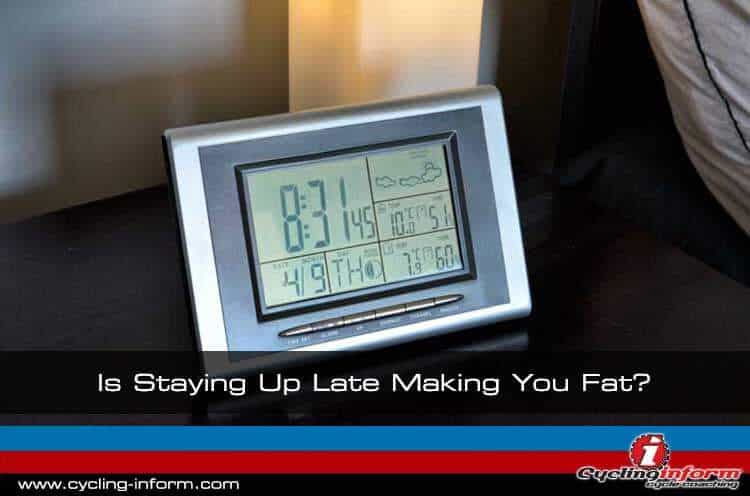The opposite would seem to make sense: if you stay up late, you burn more calories. Burn more calories, burn more fat. Right? Unfortunately, staying up late can set off a multi-pronged attack on your body composition. First, sleep is vital for recovery.
If you don’t get enough sleep, your body won’t build as much muscle mass – no matter how much time you spend on the bike. Less muscle mass = less fat burning power. Next, if you are sleep-deprived, you increase levels of the stress hormone “cortisol.”
The connection between stress/cortisol and obesity is well established, but it gets worse.
A recent study (Epel, Yale) shows that cortisol related fat storage tends to be around the vital organs – the worst possible place to store fat in your body.
If that’s not enough, lack of sleep is linked with glucose intolerance (diabetes), lower Growth Hormone levels, a weakened immune system, low energy, and more…
Emerging science and advances in technology now are allowing us to examine sleep at a level of detail never before possible. In addition to documenting the more obvious consequences of poor sleep, scientists are increasingly exploring what happens during sleep at the neurological and physiological level. And what they’re recognizing is that sleep provides more benefits than previously thought and is absolutely crucial to promoting health and bodily function. Why is sleep so important? Although we naturally think of sleep as a time of rest and recovery from the stresses of everyday life, research is revealing that sleep is a dynamic activity, during which many processes vital to health and well-being take place. New evidence shows that sleep is essential to helping maintain mood, memory, and cognitive performance. It also plays a pivotal role in the normal function of the endocrine and immune systems. In fact, studies show a growing link between sleep duration and a variety of serious health problems, including obesity, diabetes, hypertension, and depression. Sleep-Wake Cycle: Its Physiology and Impact on Health (PDF Document).
Get a full night’s sleep (7 to 9 hours), but make sure your place of rest is peaceful and pitch dark. Your natural sleep hormone, melatonin, is suppressed when there is too much light.






Leave A Comment